Meditation can illuminate the path to creating a new reality because it provides the tools to reshape thoughts and perceptions, transforming your life from the inside out.
Meditation is a powerful tool that can help you shape your reality by transforming your mind. It allows you to delve deep into your consciousness, enabling you to cultivate a positive mindset and eliminate negative thought patterns.
This inner transformation has a profound effect on your external reality, leading to improved relationships, increased productivity, and enhanced well-being.
This article will guide you on how to harness the power of meditation to create your desired reality, providing you with practical steps and strategies that have been scientifically proven to work.
Let’s embark on this enlightening journey to create a new, fulfilling reality through the power of meditation.
Key takeaways:
- Shift in consciousness: From a hyperactive mind to a calm, clear, and focused one.
- Emotional balance: Observing thoughts and emotions without judgment.
- Mind-body connection: Strengthening connection for enhanced self-awareness.
- Reducing stress and anxiety: Perceiving situations more clearly.
- Manifestation: Enhanced ability to shape and create a desired reality.
Meditation’s Influence On Perception of Reality
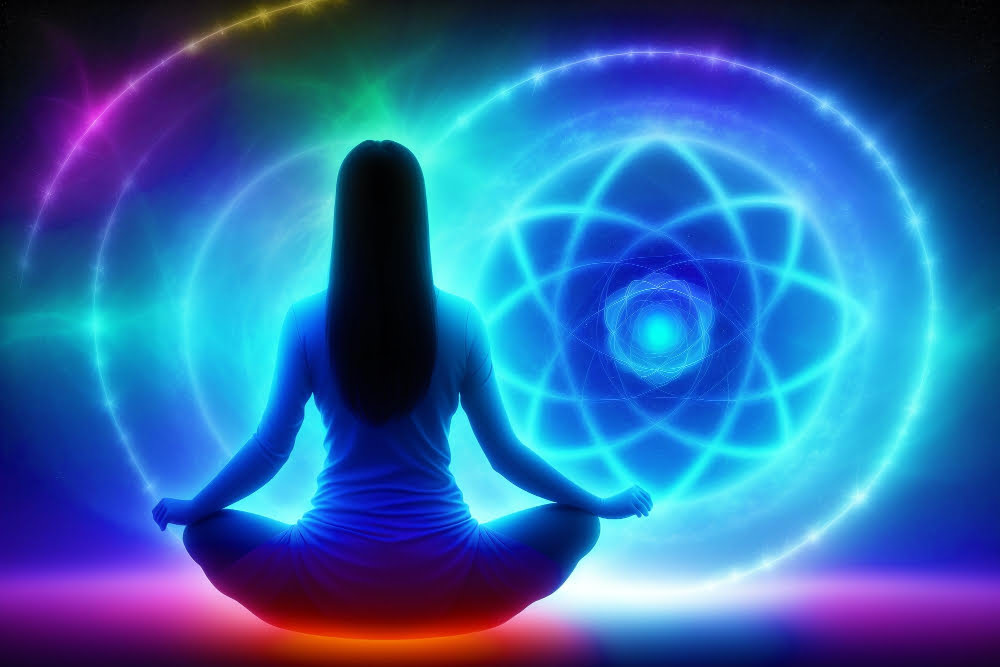
Perception is your view of the world around you, and this is often influenced by your thoughts, beliefs, and emotions. When these are filled with stress, worry or fear, it can taint your perception, causing you to experience a harsher reality. Meditation comes into play here, acting as a tool that can gently alter these thoughts and emotions.
1. Shift in consciousness: With regular meditation, you’ll find a shift from a hyperactive mind to a calm, clear and focused one.
2. Emotional balance: Meditation helps you observe your thoughts and emotions without judgment. This balanced emotional state can lead to a more peaceful perception of reality.
3. Mind-body connection: Through meditation, you’ll strengthen the connection between mind and body, learning to listen and respond to what your body needs, leading to enhanced self-awareness.
4. Reducing stress and anxiety: When stress and anxiety reduce, your mind can perceive situations more clearly, thus changing your reality.
Remember, meditation is not about escaping reality but creating an environment where your mind can perceive it differently, and more positively.
Harnessing Emotional Energy Through Meditation

Often, emotional responses can dictate how life unfolds. By performing mindful meditation, it’s possible to tap into these emotional energies, examining and understanding them rather than letting them unconsciously direct actions.
Here’s how:
1. Identification: By focusing inwards during meditation, identify emotions that arise, positive or negative.
2. Awareness: Acknowledge the presence of these emotions without judgement, understanding that they are a natural part of life.
3. Acceptance: Accept these feelings rather than suppressing or ignoring them. Acceptance is the first step towards transformation.
4. Transformation: Turn this emotional energy into a tool for change. For instance, fear can morph into a protective instinct, anger into motivation for justice.
5. Reinforcement: The more you practice harnessing emotional energy during meditation, the easier the process becomes, enabling personal growth and facilitating a new perception of reality.
Utilising emotional energy in this manner during meditation results in an empowering switch: becoming an active artist of your own life who uses emotional colors to paint a desired picture of reality.
Altering Perspectives and Beliefs Via Meditation
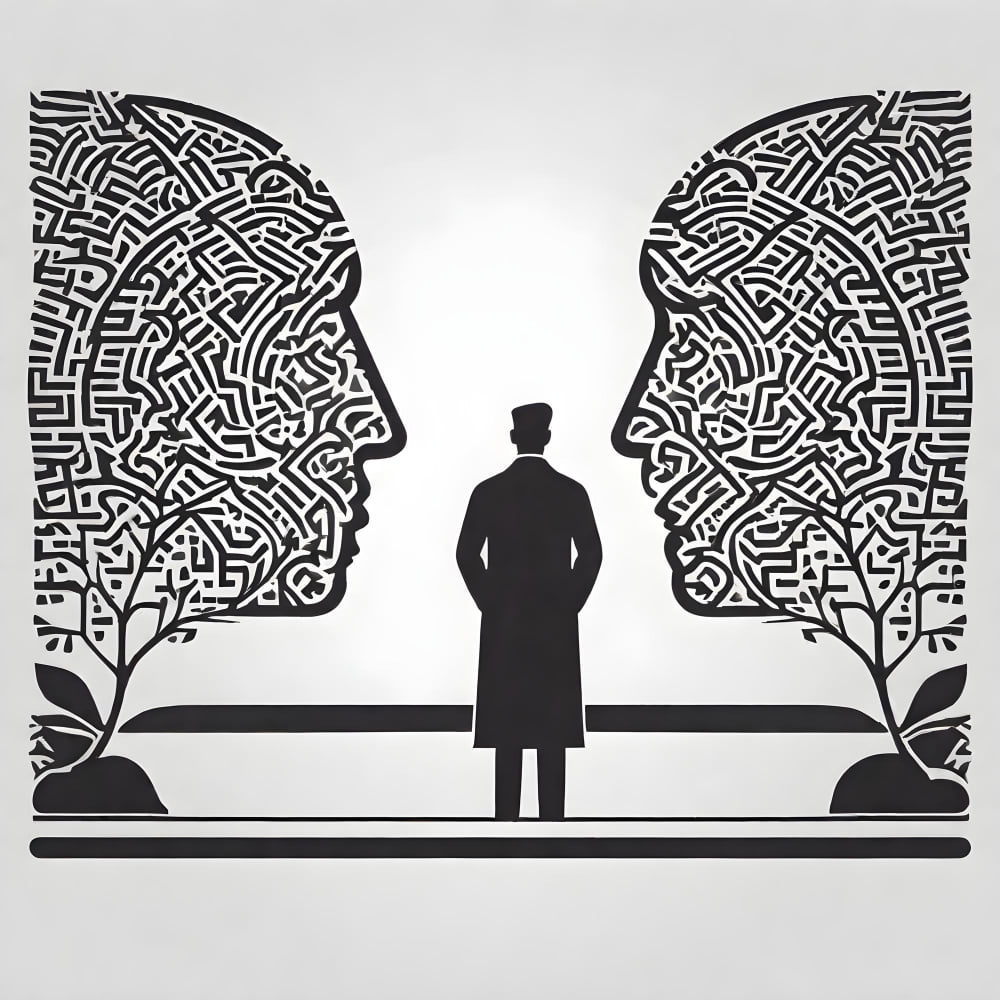
Through meditation, one can cultivate a profound inner stillness. But it’s far more than just peace of mind. Think of it as the key to unlock the door to your deepest beliefs, so you can truly analyze them, understand them, and, if necessary, change them.
As you meditate, you calmly observe your thoughts and feelings, gaining an awareness that thoughts are transient and not facts. Suspend judgment and observe recurring thoughts and beliefs. This offers a clarity, like cleaning a smudged window. As the mind quiets, underlying beliefs surface. The practice of self-observation can reveal thought patterns that shape your unique perceptions of reality.
So, how does one leverage meditation to alter beliefs? First, you need to consistently practice meditation to familiarize yourself with the thought landscape you’re dealing with. Once you’ve recognized a belief that doesn’t serve you well, be it fear, doubt, or negativity, you can begin to gently reshape or replace it with a thought that’s more uplifting.
Second, form a mantra or affirmation, to serve as a compass guiding you away from limiting beliefs. Every time an outdated belief emerges in your meditation, remind yourself of your mantra. Over time, this has the ability to replace your existing beliefs with a new, more positive reality.
Remember, meditation isn’t about forcibly altering your beliefs, but rather creating an arena where growth can naturally occur. As with all things meditation, patience is vital. It’s a journey, not a destination. Changes might not be immediate, be prepared for that. But each practice is a step forward, so keep going!
Creating a New Reality Through Daily Meditation Practice
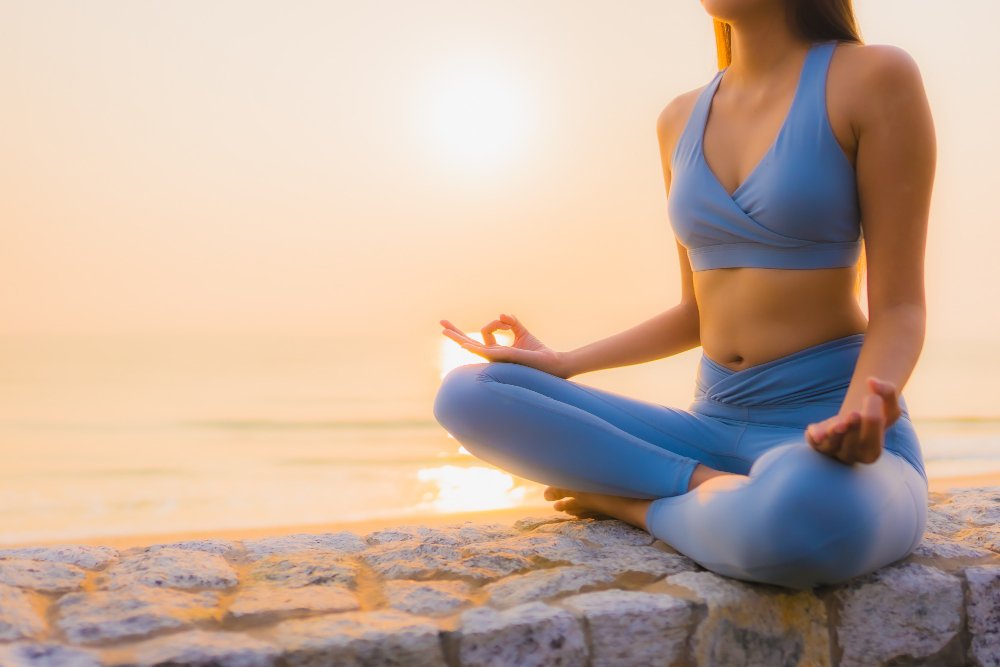
Embarking on a journey of daily meditation puts you in control of your mind, making way for the creation of a fresh reality attuned to your desires and aspirations.
1. Presence: A consistent daily practice aids in enhancing present moment awareness, gradually diverting attention from the noise of past regrets and anxieties of future.
2. Perception shift: Each focused moment shapes the lenses through which we perceive our surroundings, bringing about a shift in our reactions to experiences.
3. Manifestation: As focus sharpens and peace inhabits our thoughts, distressing emotions diminish, shining a light on our inherent capacity to manifest our reality.
4. Inner Harmony: With time, meditation strengthens the alignment between our thoughts, words, and actions— aiding in the creation of an authentic reality in resonance with our inner self.
5. Liberation: Finally, daily practice opens the door to liberation from self-limiting beliefs, offering the freedom to mold our reality uninhibited.
Surely, the gradual transition may challenge your patience, but remember, persistence is key. Bite by bite, a little will pave a path to a lot.
The Impact of Regular Meditation On Mindfulness
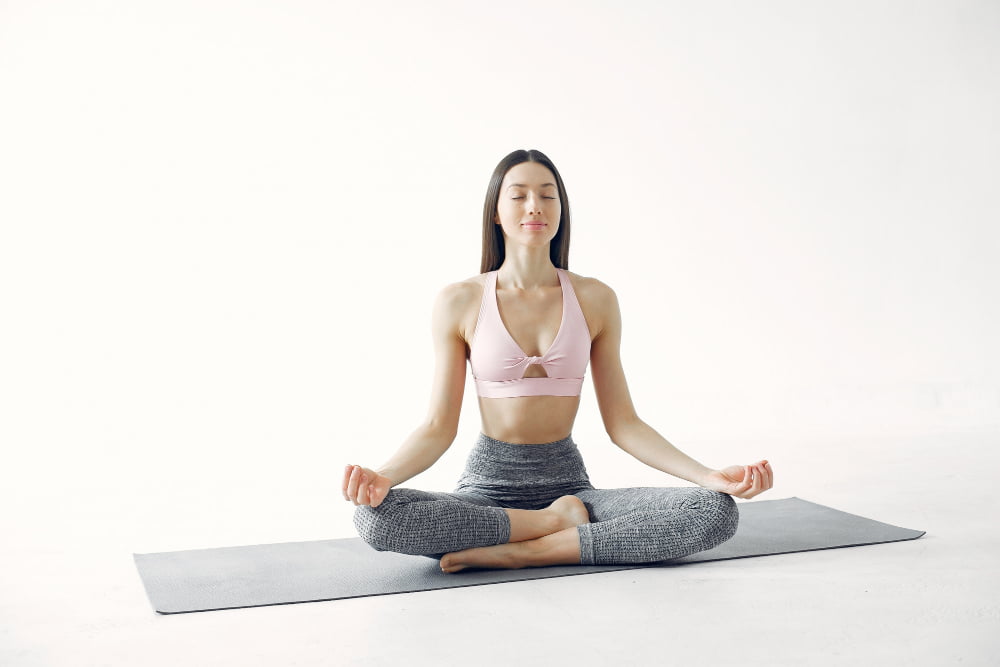
Keeping up a steady meditation practice has a profound effect on the development of mindfulness. When awareness becomes a standard part of your daily activities, your consciousness shifts.
Here are some key points to understand this process:
- 1. Meditation enhances your awareness, letting you experience each moment thoroughly without getting caught up in your thoughts.
- 2. With regular practice, you notice subtler aspects of your experience, such as sensations, thoughts, and feelings as they arise.
- 3. This heightened awareness directs your attention to your actions, reducing impulsive reactions and increasing thoughtful responses.
- 4. By fostering mindfulness, meditation supports self-kindness. Nonjudgmental observance of your own thoughts and feelings often results in heightened self-compassion.
- 5. Stress and anxiety reduce with consistent mindfulness, as you learn to detach from worries about the past or future, focusing instead on the present.
Remember, consistency is key. Like physical exercises, you reap maximum benefits from your meditation practice when you commit to it over time.
The Crucial Role of Meditation in Transforming Life
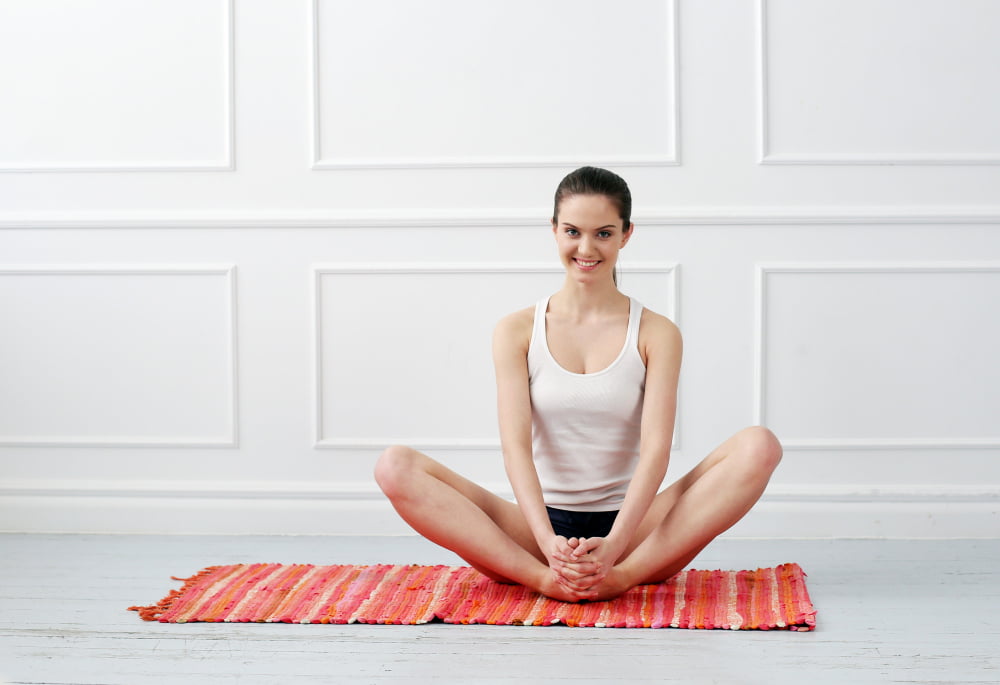
Meditation cultivates an environment for significant change within you. It begins subtly, clearing the clutter of your mind and instigating a sense of calm. This steady and transformative practice equips you with the ability to respond rather than react – a small shift that is profound in its impact.
By quieting the mind, you are better able to listen to your inner voice, your genuine self-expression, absent from the noise of external influence. This increases self-awareness and understanding, paving the way for self-improvement.
Meditation, being an effective stress reducer, strengthens your resilience during tough times. It empowers you to navigate life’s challenges with more grace and composure, replacing anxiety and fear with tranquility and courage.
Lastly, with regular practice of meditation, you cultivate a deeper appreciation of the present moment. This absorption in the ‘now’ transforms perception of time, instilling a sense of prolonged contentment and fulfillment that bypasses the fleeting nature of moments.
In a nutshell, meditation fosters inner growth, strengthens resilience, boosts self-awareness, and enhances present moment appreciation. All crucial elements in transforming your life.
Practical Strategies for Integrating Meditation Into Daily Routine

To incorporate meditation into your daily routine, start small. Beginning with five to ten minutes per day can be effective.
You may choose a quiet space free from distractions to cultivate a sense of tranquillity. Optimal times could be early morning or late evening, perhaps before or after major activities, depending on one’s personal dynamics.
Consistency holds the key in this journey. Regular practice helps establish a rhythm, thus promoting deeper engagement with mindfulness.
Using guided meditation apps or hiring a meditation coach could be beneficial, especially for beginners. The guidance provided assists in keeping the focus, thereby maximizing the benefits.
Remember that patience is crucial. The change won’t be instantaneous; it’s a gradual process of growth and understanding. Therefore, taking one step at a time can lead to meaningful and lasting change in your perception of reality.
Experiment with different styles of meditation, such as mindfulness, transcendental, or Zen meditation. Exploring these different methods allows you to discover the practice that best suits your needs and personality.
Finally, intertwine meditation with everyday activities. For instance, practicing mindful eating or mindful walking can help instill mindfulness into the mundane aspects of life.
FAQ
Can meditation change your reality?
Yes, regular meditation effectively alters your perceived reality by transforming patterns of thought, emotion, and bias.
How meditation transforms your life?
Transforming your life through meditation revolves around consistent inward-focused periods that enhance brain functionality, alleviate anxiety, bolster self-awareness, refine focus, and potentially aid in managing clinical disorders.
How does Joe dispenza meditate?
Joe Dispenza meditates by focusing his attention on his heart, and then visualizing and feeling the emotions of a desired outcome, a practice he refers to as “the formula.
What are the spiritual benefits of meditation?
Meditation, particularly of the spiritual sort, can aid in realizing the eternal truth, releasing past and future anxieties, and focusing the mind on the solace found in the present moment.
How does meditation influence the perception of oneself?
Meditation influences the perception of oneself by fostering self-awareness, cultivating focus, and developing a healthier connection with emotions and thoughts.
In what ways can regular meditation practice alter your physical health?
Regular meditation practice can improve your physical health by reducing stress, lowering blood pressure, enhancing the immune system, and increasing your overall energy and productivity.
Can the practice of meditation help in dealing with past traumas?
Yes, consistent practice of guided mindfulness meditation can be effective in dealing with past traumas by helping to regulate emotions, promote relaxation, and build a healthier relationship with thoughts and memories.